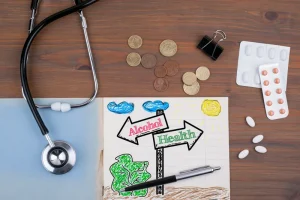
This is not to say that alcohol causes aggression, or serves to makes someone angry, in and of itself; however, it may be a contributing factor when it comes to difficulties controlling these emotions. In addition, alcohol abuse and addiction can result in poor anger management skills. In addition to potential mental health disorders related to difficulties managing anger, there are several physical side effects of unchecked and chronic anger. This activates the stress response, which speeds up heart rate, respiration, and blood pressure, and increases body temperature.

No, alcohol isn’t good for you. Will new dietary guidelines be shaped more by health or industry interests?

Studies have found that cortisol interacts with the brain’s reward or pleasure systems, which can contribute to alcohol’s reinforcing effects—forcing people to consume greater amounts to achieve the same effect over time. Cortisol also can promote habit-based learning, increasing the risk of becoming a habitual drinker and increasing the risk of relapse. Alcohol consumption https://ecosoberhouse.com/article/alcohol-poisoning-signs-and-symptoms/ may also lead to a rage response because of expectations, according to researchers (1). For example, if a person goes into a drinking experience with the expectation of alcohol helping them pick a fight with a partner later, that’s then likely to happen. They found that people with HTR2B Q20 tended to be more impulsive and aggressive under the influence of alcohol.
Clarifying the distinctions between these emotional responses
However, for the best results, your doctor will likely treat them together. People with depression frequently lose interest in activities that once brought them joy like hobbies and social events. So why is it so hard to know whether alcohol is good or bad for us—especially for our brains?
- In this post, we’ll explore the current science and some practical ideas on how to approach the topic.
- “It can be difficult to be aware of the impact of your emotions due to alcohol’s effect on the brain,” Metcalf explains.
- Find a supportive friend or family member to be with you while you withdraw and support your new non-drinking lifestyle.
The Link Between Borderline Personality Disorder and Anger
Dr. Carlos Todd PhD LCMHC specializes in anger management, family conflict resolution, marital and premarital conflict resolution. His extensive knowledge in the field of anger management may enable you to use his tested methods to deal with your anger issues. Integrating therapy, robust support systems and personalized coping strategies is paramount to fostering sustainable progress towards emotional equilibrium.
- If you are still experiencing withdrawal symptoms after three days, talk to your healthcare provider.
- An increase in anger after trauma and the use of alcohol to cope with PTSD symptoms were stronger predictors of physically aggressive or violent acts than a lifetime diagnosis of PTSD without anger.
- When confronted with anger in intoxicated individuals, maintaining calmness and composure is key.
- Adult women on the whole drink less alcohol than men and have lower rates of alcohol-related disease and death.
- Anger is rarely an isolated emotion, shedding light on its connection to alcoholism.
- When that person cuts out alcohol, there is a period when their brain hasn’t yet received the message and still overproduces the stimulating chemicals.
And you haven’t seen it yet, but you’re going to see something that’s going to be the worst in our history,” he warned without specifying the danger. Trait anger (chronic) has been found to be higher for individuals with BPD than for others alcoholism and anger (Armenti and Babcock, 2018). Additionally, those with BPD, having higher trait anger, were more likely to engage in IPV than others. The same amount of alcohol is likely to have a bigger impact in your 60s or 70s than it did in your 20s.

Quitting alcohol — or even drinking less — reduces risk of oral cavity and esophageal cancer, per new analysis
- While alcohol is clearly linked to increased aggression andviolence, many people can drink and drink a lot without ever experiencingheightened anger or aggression.
- Alcohol, like fatigue, diminished sleep, stress, and certain drugs, inhibits the activation of the prefrontal cortex, that part of our brain responsible for problem-solving, judgment, and overseeing and managing emotions.
- However, it can be harmful and destructive if you cannot control your anger.
- Psychodynamic approaches delve into underlying emotional conflicts and unresolved traumas, offering insight and resolution.
- Moreover, we are going to delve into the intricate relationship between anger and addiction, shedding light on how anger manifests within the context of substance abuse and dependence.
- Injury, illness, or exposure to extreme temperatures can cause stress to the body.
